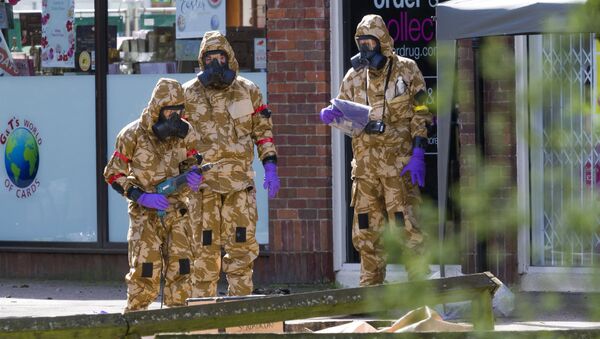"Therefore, the problem is obviously not with Russia 'loving Novichok so much' (to use the words of Mr. Hunt), but with the UK and its allies willing to allow their laboratories, like the notorious Porton Down, to continue with chemical experiments and provocations", the spokesperson said, as quoted by a press release published on the embassy's website.
READ MORE: US Has Prepared New Sanctions Against Russia Over Skripal Case — Reports
On Wednesday, UK Foreign Secretary Jeremy Hunt wrote in Twitter that Russia objected to a military-grade nerve agent Novichok being added to the list of banned chemical substances by the Organization for the Prohibition of Chemical Weapons (OPCW) and accused Moscow of using it in the poisoning incident in Salisbury last March.
On 4 March 2018, former Russian spy Sergei Skripal and his daughter Yulia were found unconscious on a bench near a shopping center in Salisbury. London claimed they were poisoned with a military-grade A234 nerve agent and accused Moscow of staging the attack, provoking a huge international scandal.
READ MORE: Secrecy Around Skripal Case Shows It Was UK 'Anti-Russian Set-Up' — Embassy
The Kremlin has repeatedly dismissed the claims about Russia's involvement in the attack and stressed that Moscow has been denied access both to the investigation into the incident and to the Russian nationals.





